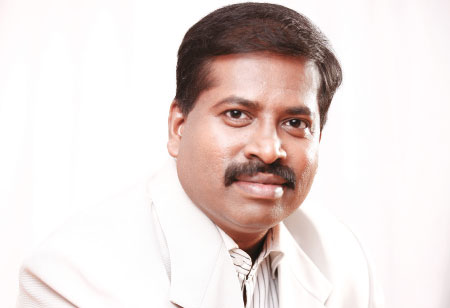Digital Transformation in Travel & Hospitality
By Rengaiyan Baskar, Vice President - Travel & Transportation, Mphasis

Rengaiyan Baskar, Vice President - Travel & Transportation, Mphasis
Digital Transformation has improved the Travel industry by enabling them a phenomenal user experience, greater operational efficiency to support the customers. The cycle of the traveler is now completely supported by the digital initiatives of the service providers. You take any point of the travel – either while using Airlines, Surface Transport service providers like Taxis, Metro Trains & Buses, Hotels and Service Apartments – everywhere the Digital disruption has made a big difference. Every service provider today further tries to improve the service levels offered to the customers through digital technologies. Communication channels have also increased more collaboration across the stakeholders of the true travel. Digital makes the life simple and easy for Millennial & Gen Z Customers.
Airlines
Airlines started looking for - blockchain technology - to address the customer’s baggage woes. Using this technology now the baggage handling would be easy for the flights, connected flights, airports and Customs. Single token can provide complete tracking of the baggage while it is generated at the origin. Another area where the airlines shall focus may be On-Time Performance (OTP). Using Artificial Intelligence (AI), Machine Learning (ML) the entire operations at the airport can be completed controlled using the Robotics. The humans who take care of operations may start receiving the instruction by the simulated AI Engines which will operate with Steller performance to make the human successful. OTP digitization naturally improves the operational efficiency and flight delays which can save several millions per airlines per country. It also improves the brand value of the airlines while they maintain the OTP. MRO (Maintenance, Repair and Overhaul) is another area where the service levels can be significantly improved by deploying mobility solutions by connecting the pilots (on the fly) and Engineers (on the ground). It reduces significate waiting time for the aircrafts to get ready for take-off. Chatbots can enable the travelers to book by having the chat instead of mulling over the keyboard.
“Every service provider today further tries to improve the service levels offered to the customers through digital technologies. Communication channels have also increased more collaboration across the stakeholders of the true travel”
Hospitality
Every hotel like to offer memorable guest experience which starts from check-in to check-out. Guests as well as Hotels are now well connected and trying to balance the best communication channel between them to offer more personalized services. Big Data offers cultural fit, regional fit and specific fit information in advance to the hotels so that they can offer right experience to the customers. Larger hotel chains started investing on Big data to have better and open views. Travelers, especially, Millennial prefers privacy. Tour operators are started providing ‘automated travels’ where the guests can demand for specific tours (the solution can be downloaded using the app with the voice guidance). No human support at all. So guest feels the guided tour is ‘privatized’ and s(he) is not disturbed with ‘human guides’. Period Chatbots are now the true digital assistants for the human. Tasks like booking a hotel room, placing an order for lunch can be done over the voice commands. Robots are now commonly available to serve during odd-hours to provide miniature services for the guests who demands toiletries, New magazines etc.
Surface Transportation
Internet of Things (IOT) is truly makes the world ‘connected’. The human or a material which connected using the ‘identifier’ may not get lost on this earth unless the identifier is completely destroyed. IOT can make a better world where the expectation of the services are assessed in advance or may be predicted as we experience with OLA or UBER cab movements. It avoids surprises. IOT connects the vehicles with Gas stations so that the demand can be raised by the Petrol stations and supply would be made available for those connected vehicles. After the Driverless cars, the new buzz word on replacing the humans with Robots on the Auto Service stations. The cars are expected to get serviced at the shortest time. Any demand signals raised by the proposed travelers in the IOT units can help the transportation team of the city to ply the buses or trams according to the demand cycle. Traffic congestions can be predicted very easily once the service requests are triggered by the surface travelers who opt to use the Roads on any given point of time or day. So the traffic (paths or ways) guidance will be digitally simulated and shared by the service provider to the users. It helps them to plan their surface movements. IOT can completely control and efficiently monitor the city by the city administrators. IOT can play the role at the personal level and every device level. The benefits are endless and mind boggling.
Digital transformation is a journey. The providers and users are looking for more and ocean of opportunity exists in the travel space when it is on Automation. Lots of insights needed to fully automate however only the learning/experiencing can be the best away to proceed further on this - as we deploy and experience ‘the automation’.




